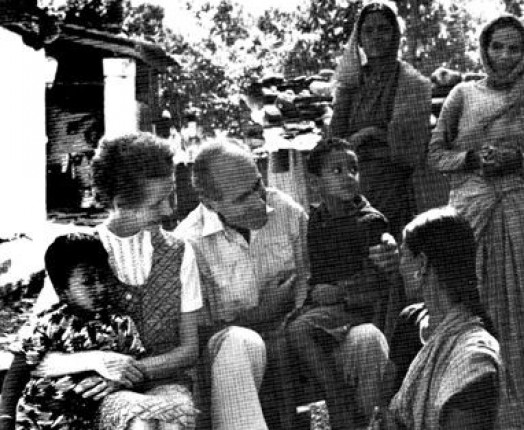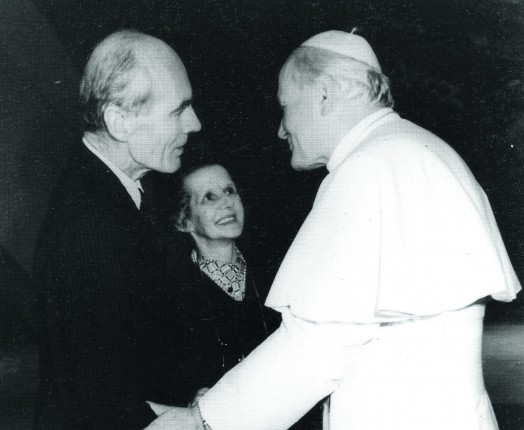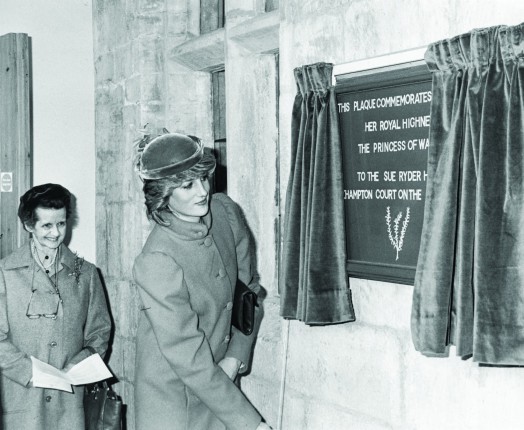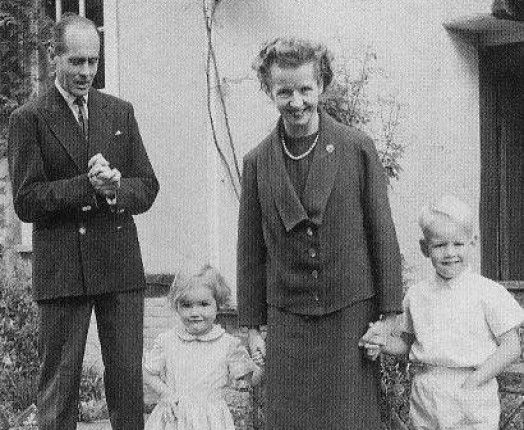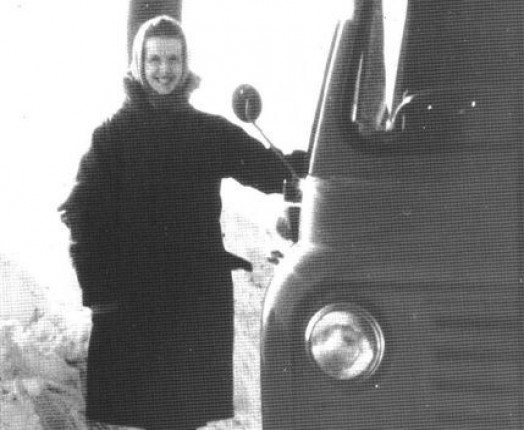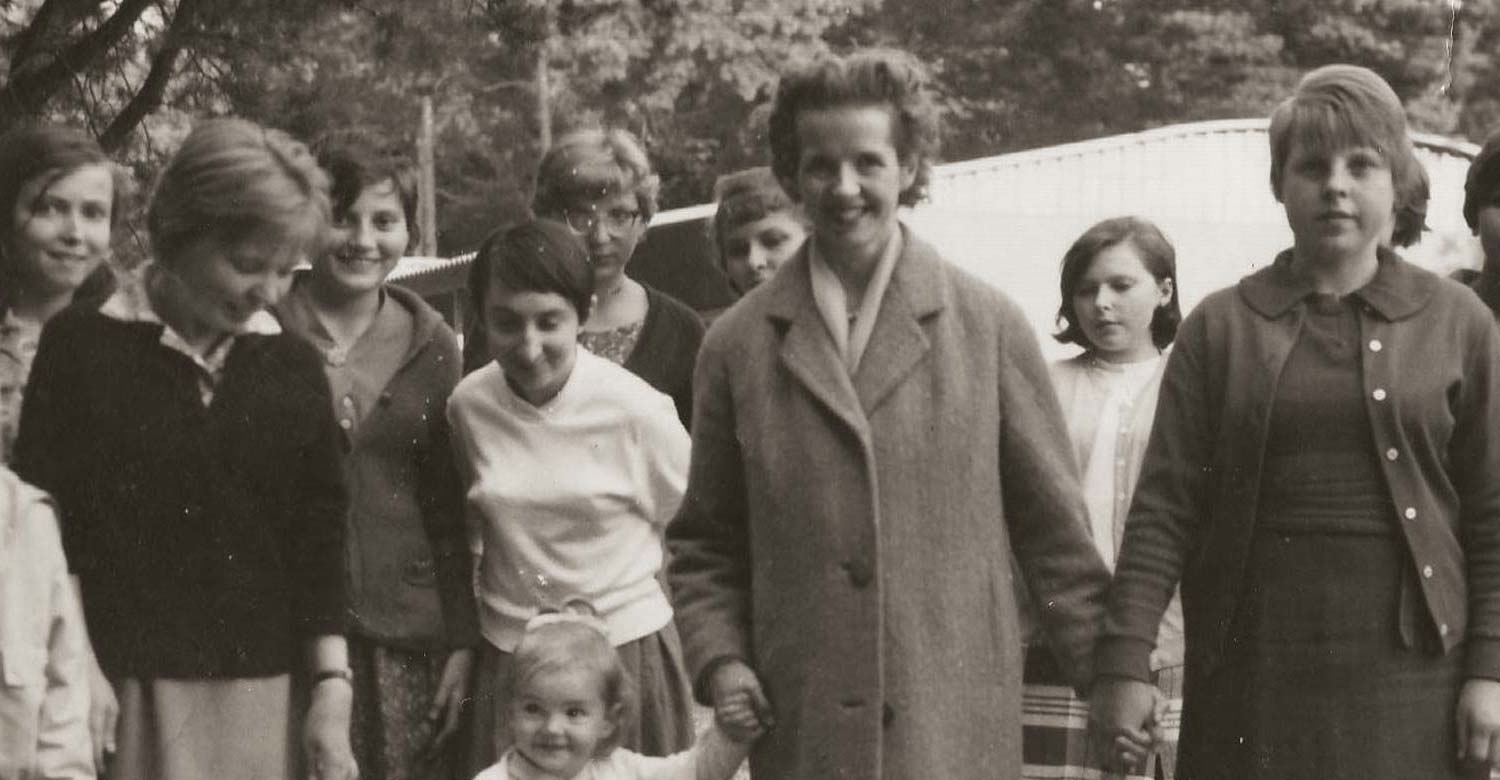
Sue Ryder
1924 – 2000
Early years
Margaret Susan Ryder (always known as Sue Ryder) was born in 1924 into a large land-owning family in Yorkshire. The course of her life was to be determined by two early influences – the example of her much-loved mother’s voluntary social work, and what she herself witnessed of the widespread social misery caused by the Great Depression.
World War II
When war broke out, she left Benenden School in Kent and volunteered to serve in the First Aid Nursing Yeomanry (the FANYS). She was only 16, but managed to keep that inconvenient fact from the authorities. Within a few years she was recruited to the Polish section of the highly secret Special Operations Executive, created by Winston Churchill to ‘Set Europe Ablaze’ and co-ordinate Resistance activities in Nazi-occupied Europe.
What she witnessed from that time to the end of the war, especially the selfless, cheerful courage of young men and women embarking on the most hazardous operations, left her not only with a passionate, enduring love of the Polish people, but also with a determination to relieve the suffering of a devastated continent.
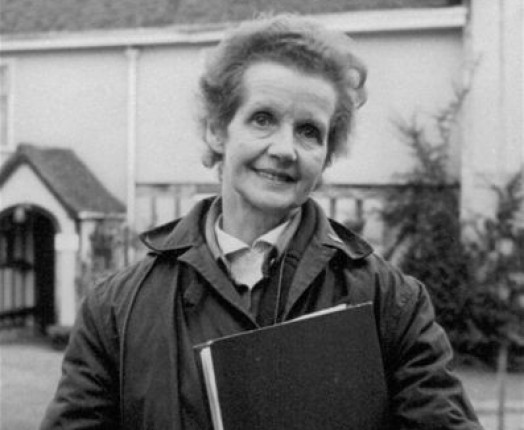
After World War II
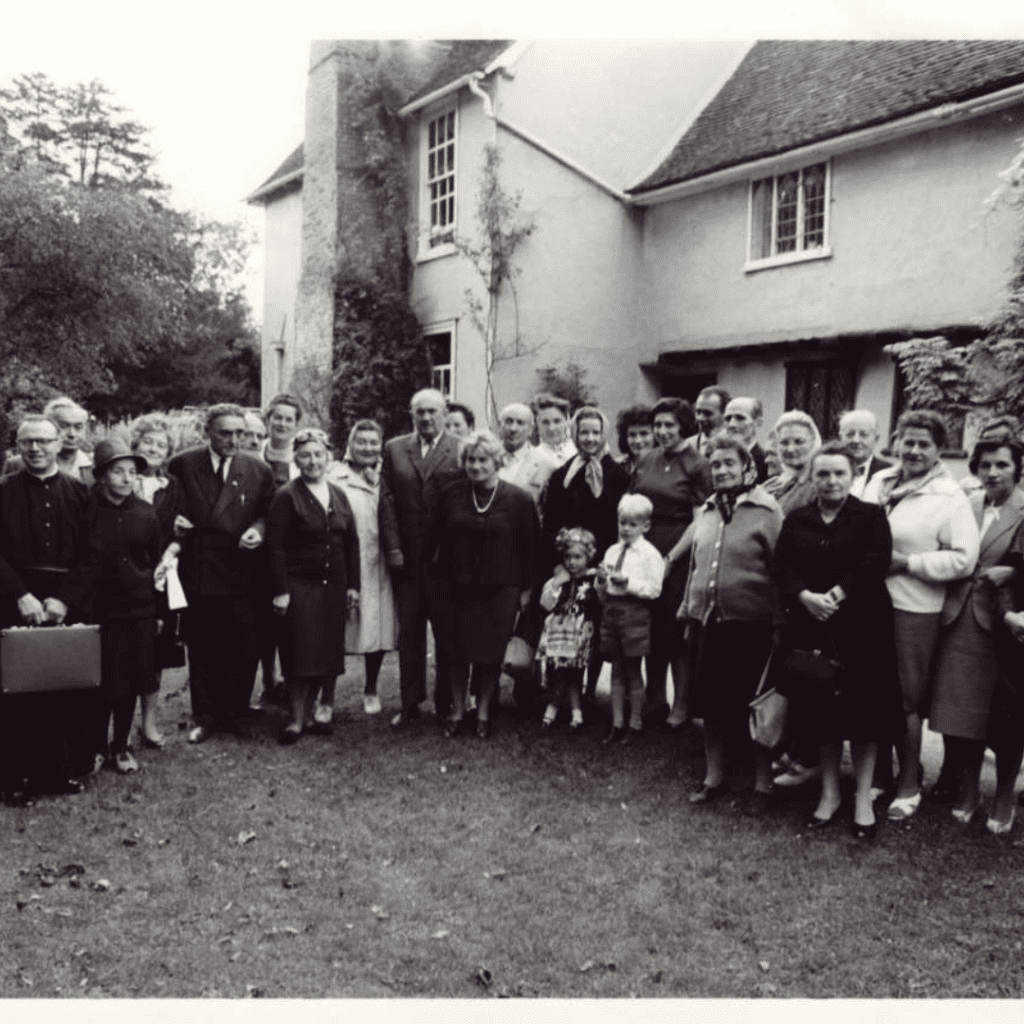
After working for the SOE throughout World War 2, she devoted herself to charity. In the midst of Sue Ryder’s many practical efforts to relieve the suffering of post-war Europe, she began herself to bring back to England survivors from the concentration camps who were sick and needed long-term nursing.
They came to her mother’s house in the village of Cavendish, Suffolk. In 1953 she formed the Sue Ryder Foundation to more effectively provide homes and domiciliary care teams for the sick and disabled in any part of the world where assistance was required and where the opportunity presented itself.
A Living Memorial
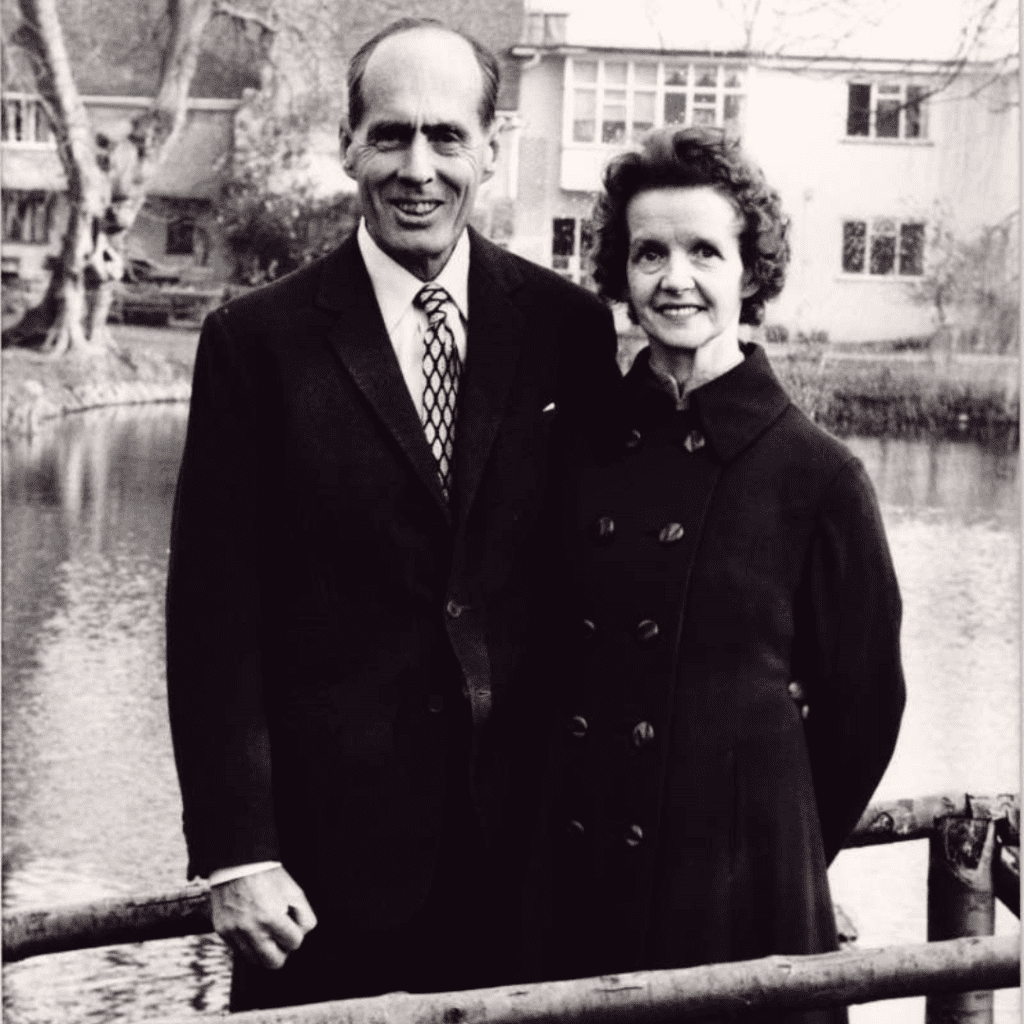
Since that time, the work has grown steadily in size and in its capacity to help people in need. Sue Ryder always intended that the work should be “a living memorial to the victims of tyranny and to those who suffer and die as a result of persecution”. Today it is certainly that; but it is also, in its own unique way, a splendid testimony to the compassion, the indomitable resolve and – most of all – the deep Christian faith of this apparently fragile but immensely dynamic woman.
In 1959 she married Group Captain Leonard Cheshire, one of Britain’s best-known war heroes, a bomber pilot who witnessed at close hand the destruction wrought by the atomic bomb dropped on Nagasaki. Cheshire himself had been setting up similar homes in Europe, and he and Sue Ryder, with the comfort of their strong Catholic faith, made a formidable team for over thirty years until his death in 1992.
